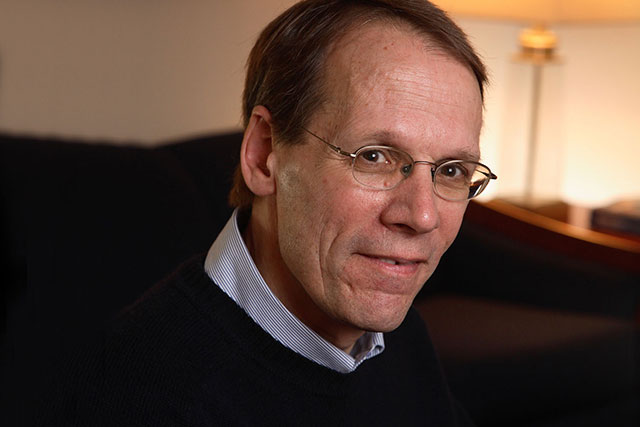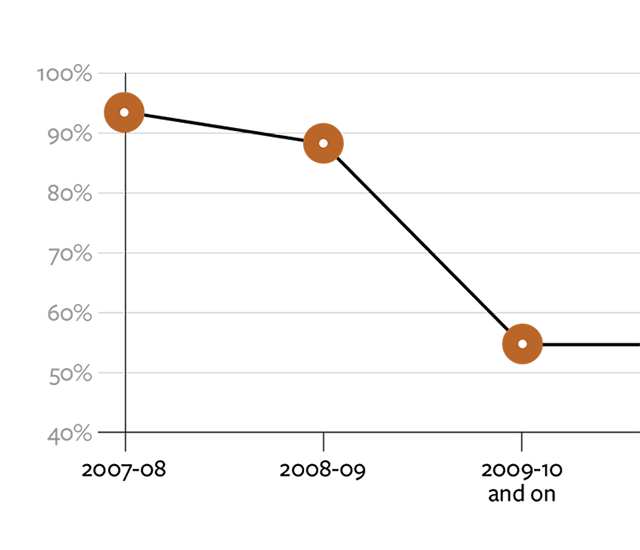From 1990 to 2013, for example, higher education’s share of total state spending fell from 11.8 percent to 10.3 percent. More recently at U.Va., a proposed $9.39 million budget increase for the 2014-15 fiscal year from the Commowealth of Virginia was reduced to a $1.19 million increase.
Not surprisingly, low-performing and less qualified teachers were more likely to have their probation extended. These extended teachers were judged by their principals to be less effective. Those who taught in grades with standardized student achievement tests were less able to improve the achievement of their students. We also found evidence that the tenure policy resulted in a substantial increase in the voluntary attrition of teachers who were extended. Extended teachers exited from New York City or transferred among schools in New York City at a rate that was 50-percent higher than teachers in the same schools who were approved for tenure.
Extended teachers who leave their schools are less effective than are those likely to replace them—as measured by principal ratings and value-added estimates. Thus, just extending the tenure probationary period by a year led to a net improvement in the effectiveness of teachers.
Schools vary in the proportion of teachers approved, extended and denied tenure. In particular, schools with higher percentages of black students have been more likely to extend tenure decisions than those with fewer black students. These differences are largely explained by differences in teachers’ effectiveness ratings, which are assigned by principals based on the district-developed Effectiveness Framework. Because extended teachers are more likely to exit, schools with larger enrollments of black students may disproportionately benefit from the reform, given that relatively more effective teachers replace extended teachers who voluntarily exit.
Most districts grant some form of tenure, based at least in theory on teachers demonstrating proficiency. Yet many districts do only cursory evaluation during the tenure process. Our findings indicate that adopting tenure policies similar to those in New York City may result in an improvement in teacher effectiveness. These reforms may be comparatively easy to implement, relative to other discussed human-resource policies that require more controversial policy changes, such as pay-for-performance.
Proponents typically argue that tenure prevents teacher dismissal for political purposes or due to capricious decisions by administrators or politicians. Tenure could guard against dismissal of more experienced, higher-paid teachers during periods of tight budgets—those times when school leaders may be more focused on reducing costs while meeting class-size requirements than they are on student learning. Tenure does not require schools or districts to retain ineffective teachers but instead provides a due-process mechanism to dismiss tenured teachers for cause.
Our findings suggest that many of the benefits sought by plaintiffs in the Vergara case may well be achieved with modest changes in the tenure process rather than its elimination. Our results suggest these effects may be especially pronounced in schools with black and poor students.
In general, we know far too little about how a more rigorous tenure assessment of teacher effectiveness would influence the quality of teaching. NYC’s reforms to the tenure process are still in their early stages. Our results suggest large effects but provide only preliminary evidence, because we have not fully ruled out the effects of other factors that may have been at play in the district simultaneously.

